The violin is one of the most perfect instruments! It is the soprano member of the family of string instruments and has extraordinary musical versatility. The beauty and emotional appeal of the instrument are close to the human voice, and the violin is also capable of fantastic agility and brilliant figuration. For many great artists, “the violin represents one of the greatest triumphs of instrument making.” The instrument originated in Italy, and we all know the names of the famed violinmakers Nicolò Amati, Giuseppe Guarneri, and Antonio Stradivari. The violin has since become part of numerous cultural and musical activities across the globe, and composers have written countless great works of art for the instrument. Let us sample 10 famous quotes about violins and violinists from classical musicians and other famous arts personalities.
“I know that the most joy in my life has come to me from my violin” – Albert Einstein
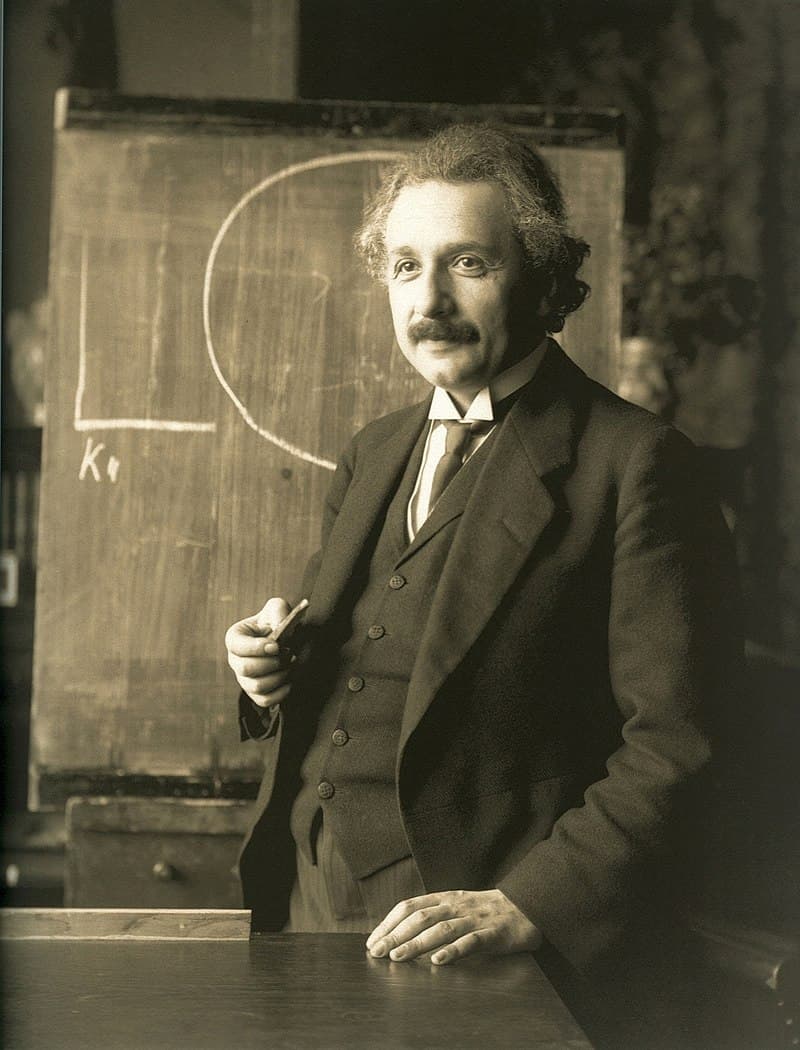
Albert Einstein, 1921
Albert Einstein (1879-1955) is probably one of the greatest and most influential physicists of all time. His theory of relativity revolutionized the way we look at the Universe, but his emotional passion belonged to Wolfgang Amadeus Mozart and his violin sonatas. Einstein once said, “Mozart’s music is so pure that it seems to have been ever-present in the universe waiting to be discovered by the master.” Einstein started to take violin lessons at an early age and he became an accomplished amateur. As Einstein’s friend Janos Plesch wrote, “There are many musicians with much better technique, but none, I believe, who ever played with more sincerity or deeper feeling.” In another famous quote Einstein stated, “If I had not been a scientist, I would have been a musician. Life without playing music is inconceivable for me. I live my daydreams in music. I see my life in terms of music.”
Wolfgang Amadeus Mozart: Violin Sonata No. 18 in G Major, K. 301
“I wound up sticking with violin because it was the strongest current in my life.” – Hilary Hahn
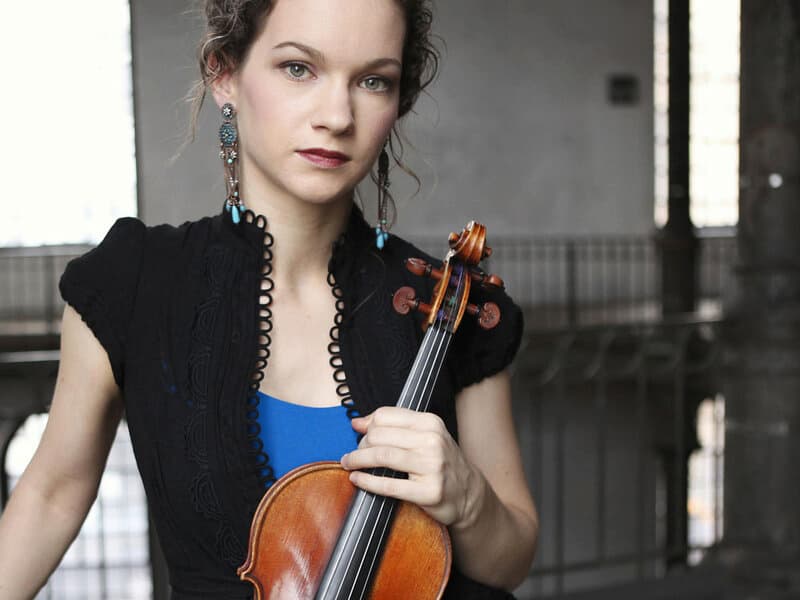
Hilary Hahn
Three-time Grammy Award-winning violinist Hilary Hahn is famous for her “clear and brilliant musicality, expansive interpretations of an incredibly varied repertoire, and organic connections with her audience.” Hahn is without doubt, one of the greatest violinists on today’s concert stage. She showed remarkable musical ability as a toddler, but was equally interested in the visual arts, took gymnastics and rowing lessons, and freely admits that her biggest love was ballet. Her ballet lessons complemented instructions on violin technique and musical phrasing, as her teacher “always advised me to think about music as stories beyond the notes, and explained how to memorize and analyze the language of music.” Hahn remembers that after a good performance, “she was rewarded not with going somewhere, not with cakes or candies, but with a new book.” And as we learn from her famous quote, Hahn would have been successful in any field, but thankfully she stuck with the violin.
Hilary Hahn Plays Johann Sebastian Bach’s Violin Concerto No. 2 in E major, BWV 1042
“A violinist should always be happy when he is playing. If he is playing well, he should be happy that he is playing well. If he is not playing well, then he should be happy because it will soon be over.” – Jascha Heifetz
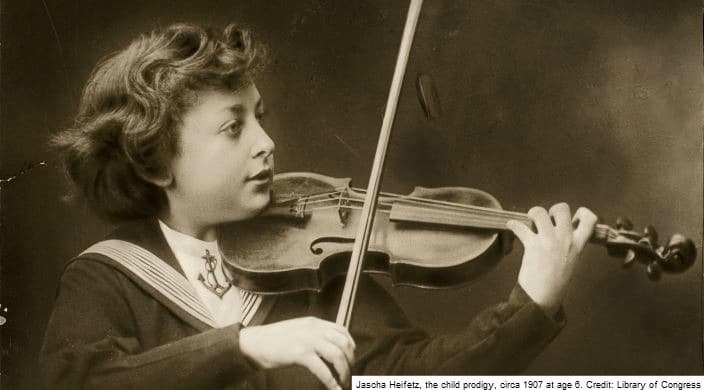
Jascha Heifetz, 1907
The unique and singular Jascha Heifetz was nicknamed “God’s fiddler,” as he was hailed as a “transcendentally great violinist.” He was only 16 when he walked onto the stage of Carnegie Hall, and a critic writes, “Heifetz’s breadth, poise, and perfect regard for the turn of a phrase constantly left his hearers spellbound. Nothing that he undertook was without a finish so complete, so carefully considered and worked out, that its betterment did not seem possible…For the moment it is sufficient to say that he is supreme; a master, though only sixteen.” Heifetz was born in Vilnius, Lithuania, and he started violin lessons at the age of two. His public performances quickly created a sensation, and he would soon take Europe by storm. Heifetz was considered “the greatest violin virtuoso since Paganini,” but as his famous quote discloses, he remained a humble servant to music and his profession.
Jascha Heifetz Plays Tchaikovsky’s Violin Concerto in D Major, Op. 35 “Allegro moderato”
“My father gave me my elementary lessons on the violin; in a very few months, I was able to play all manner of compositions at sight.” – Niccolo Paganini
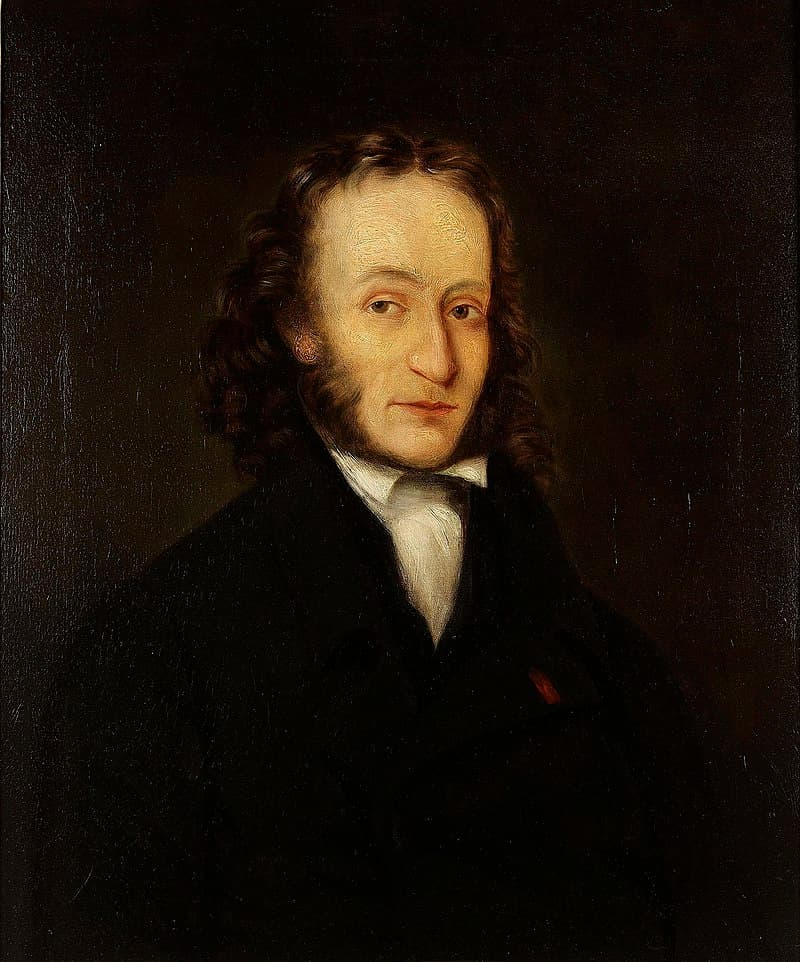
Niccolo Paganini, 1836
Niccolò Paganini is probably the most famous violinist of all time. However, he never really spoke well of his father. As he reported, “It would be hard to conceive of a stricter father. If he didn’t think I was industrious enough, he compelled me to redouble my efforts by making me go without food.” Supposedly, Paganini was forced to practice the violin for up to 15 hours a day, and withholding food and water would certainly be considered child abuse today. The violinist writes, “I really didn’t require such harsh stimulus, because I was enthusiastic about my instrument and studied it unceasingly in order to discover new and hitherto unsuspected effects that would astound people.” The only thing his father really wanted was to make money from the boy’s musical talents. Nevertheless, Paganini almost single-handedly established a new brand of performing musician, the touring virtuoso, and his influence on violin performance is timeless.
Maxim Vengerov Plays Paganini’s Caprice No. 24
“The violin—that most human of all instruments.” – Louisa May Alcott
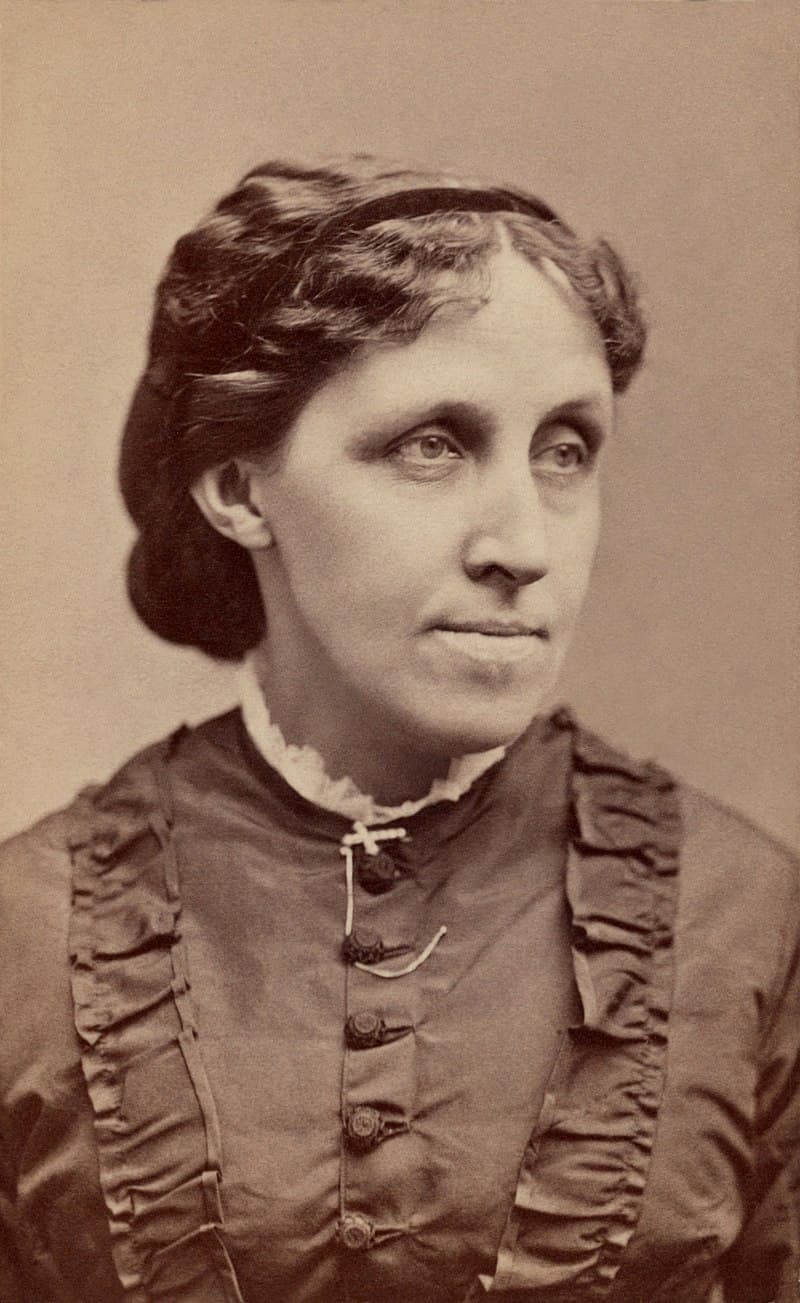
Louisa May Alcott
Our next famous quote about violins and violinists comes from the novelist, short story writer, and poetess Louisa May Alcott (1832-1888). She is best known for her novel Little Women and its sequels Little Men and Jo’s Boy’s. Jo’s Boy’s follows the characters introduced in Little Men, and we learn much about the violinist “Nat.” The famous quotation originates in a scene when Nat, who had studied in Germany, is asked to play and surprises his family with his progress in music and the energy and self-possession, which had made him a new man. “By and by when the violin—that most human of all instruments—had sung to them the loveliest songs without words, he said, looking about him at these old friends with a feeling of happiness and content, ‘Now let me play something that you will all remember though you won’t love it as I do.’ Mrs Jo said, some of our boys are failures, but I think this one is going to be a success.”
Eldbjørg Hemsing Play Ole Bull’s “A Mountain Vision”
“It is as absurd to say that a man can’t love one woman all the time as it is to say that a violinist needs several violins to play the same piece of music.” – Honoré de Balzac
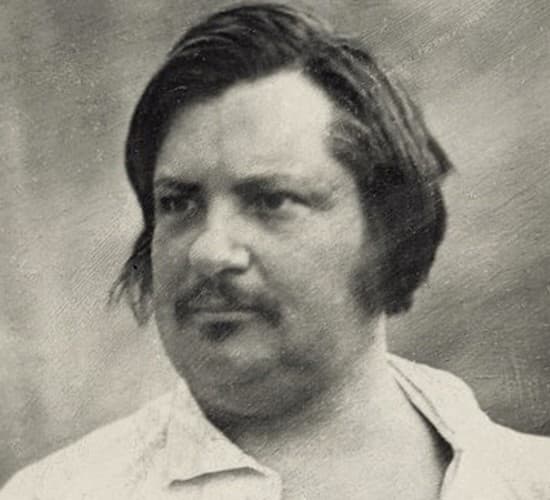
Honoré de Balzac, 1842
For our next famous quote about violins and violinists let’s stay in the realm of literature. The French novelist and playwright Honoré de Balzac (1799-1850) was famous for his keen observation of detail and unfiltered representation of society. Critics called him “one of the founders of realism in European literature.” Balzac did not play any instruments, but music provided much inspiration for his works. Balzac was a close friend of George Sand, and part of an exciting artistic environment in 19th-century Paris. Some commentators have suggested that Balzac was thinking of Franz Liszt when he wrote “It is as absurd to say that a man can’t love one woman all the time as it is to say that a violinist needs several violins to play the same piece of music.” He did apparently qualify this initial assessment with another famous quote, “The majority of husbands remind me of an orangutan trying to play the violin.” I still don’t understand what that means.
Giora Schmidt Plays Liszt’s Piano Sonata in B minor (transcribed for violin)
“In the musician, there is a tendency to have a narrowness. It’s all compartmentalized. I am playing the violin; that’s all I know, nothing else, no education, no nothing.” – Itzhak Perlman
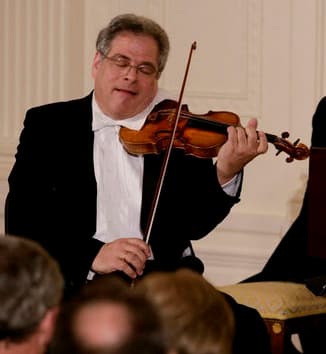
Itzhak Perlman
The great violinist Itzhak Perlman is one of the world’s most popular classical musicians. “Beloved for his charm and humanity as well as his talent, he is treasured by audiences throughout the world who respond not only to his remarkable artistry, but also to his irrepressible joy for making music.” Perlman has phenomenal talent and produces a big and radiant sound of great beauty and phrasing, with “immense breadth when the music demands it.” But what is even more, his outgoing and genial character and his generous temperament allow him to easily connect with the public, “and to call on deep reserves of emotion and humanity.” Perlman was stricken with polio at the age of four, and had to learn how to walk with crutches and how to play the violin in a seated position. As he said in another famous quote, “to be a child prodigy is a curse because you’ve got all those terrible possibilities.”
Itzhak Perlman Plays Sarasate’s “Gypsy Airs”
“When you play a violin piece, you are a storyteller, and you’re telling a story.” – Joshua Bell

Joshua Bell
Famed violinist Joshua Bell, who made his debut with Riccardo Muti and the Philadelphia Orchestra, has many stories to tell. He studied with the legendary Russian pedagogue Josef Gingold, and is currently in charge of the fantastic Academy of St. Martin in the Fields. Bell performs on the 1713 Huberman Stradivarius violin, an instrument dating from Stradivari’s “Golden Era.” Bell just loves to explore technology, and he has collaborated with artists across a multitude of genres. In the process, he has recorded well over 40 albums, been named a “Young Global Leader,” and been nominated for six Grammy Awards. In 2007, Bell performed incognito in a Washington, D.C. metro station, which inspired the children’s book and subsequently an animated film titled. “The Man with the Violin.” You can easily tell where his love for storytelling is coming from, can’t you?
Joshua Bell Plays Vieuxtemps’s Souvenir d’Amérique
“Art begins where technique ends.” – Leopold Auer
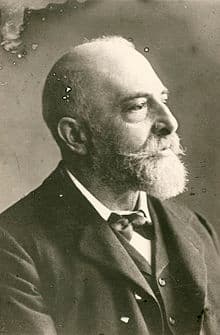
Leopold Auer
Leopold Auer (1845-1930) might be the most iconic violin teacher the world has ever seen. Among his students were Jascha Heifetz, Nathan Milstein, Mischa Elman, Efrem Zimbalist, and numerous other great musicians. Jascha Heifetz wrote, “Auer is a wonderful and an incomparable teacher; I do not believe there is one in the world who can possibly approach him. A half-hour with Auer is always to me a great emotional and intellectual stimulus. ”Many commentators consider him as the founder of the “Russian Violin School,” and a decisive force in the development of modern violin pedagogy. The majority of his students came to him as finished technicians, so that he could develop their interpretative powers. And that is exactly what his famous quote refers to, which continues as follows: “There can be no real art development before one’s technique is firmly established. And a great deal of technical work has to be done before the great works of violin literature, the sonatas and concertos, may be approached.”
Ji-Yoon Park Plays Tchaikovsky’s Sérénade mélancolique, Op. 26
“The only downside to playing the violin is that you never know when you’re going to be asked to play.” – Charlie Siem
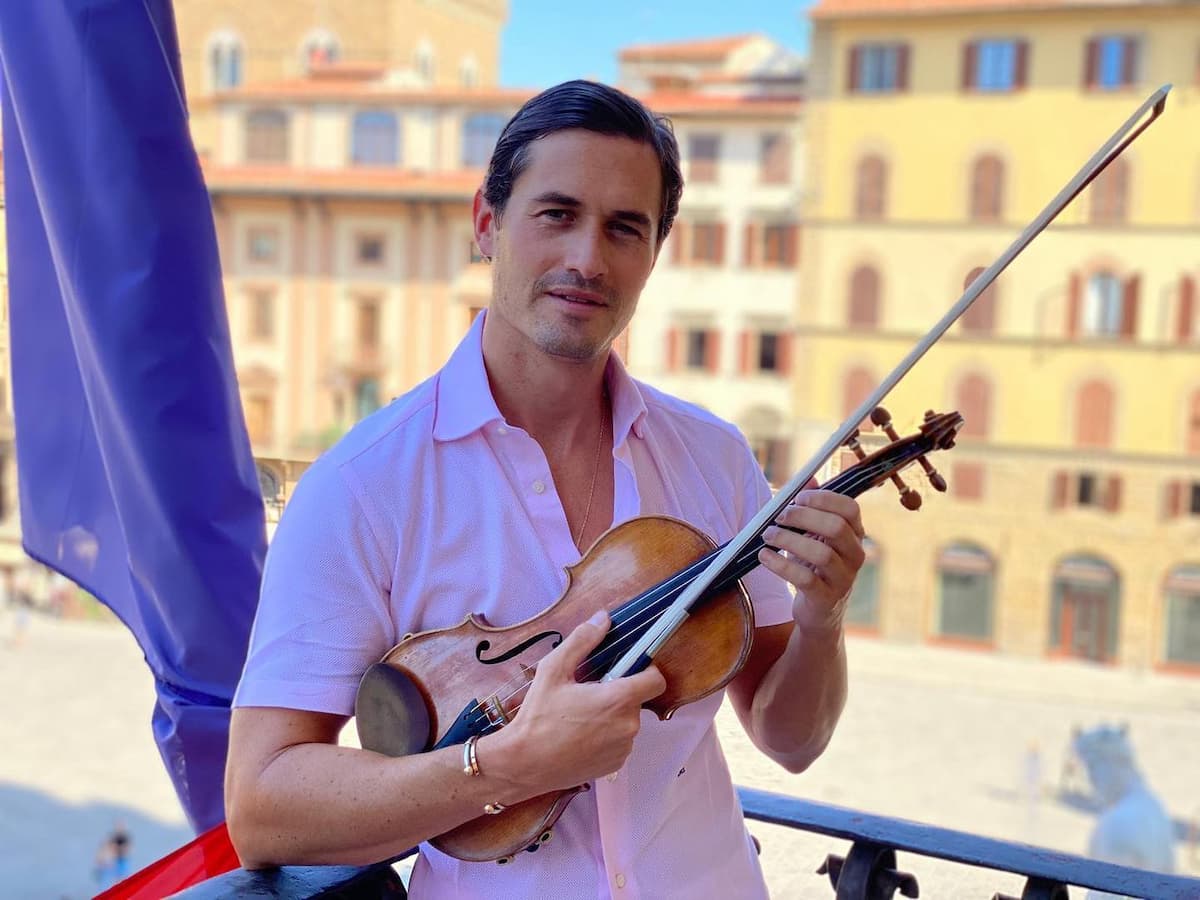
Charlie Siem
Charlie Siem is one of today’s foremost young violinists, with such a wide-ranging diversity of cross-cultural appeal as to “have played a large part in defining what it means to be a true artist of the 21st century.” And that means countless collaborations and endorsements from fashion brands including Armani, Chanel, Dior, Dunhill, and Hugo Boss. This kind of notoriety is expressed in his famous quote, “The only downside to playing the violin is that you never know when you’re going to be asked to play, I could be out to dinner or having a drink at a bar, and someone could just give me a violin, and I’ve got to be ready to play.” Above all, Siem is passionate about bringing classical music to new audiences, and it certainly appears that he is succeeding. There are literally hundreds of famous quotes about violins and violinists, so this top 10 is just a small and very personal sample. I hope you enjoyed my selections.
For more of the best in classical music, sign up to our E-Newsletter
Charlie Siem Plays Ponce’s “Estrellita”

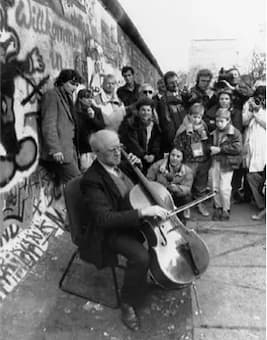
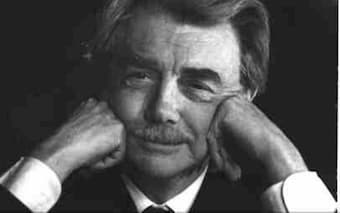
The majority of his students came to him as finished technicians, so that he could develop their interpretative powers. And that is exactly what his famous quote refers to, which continues as follows: “There can be no real art development before one’s technique is firmly established. And a great deal of technical work has to be done before the great works of violin literature, the sonatas and concertos, may be approached.”